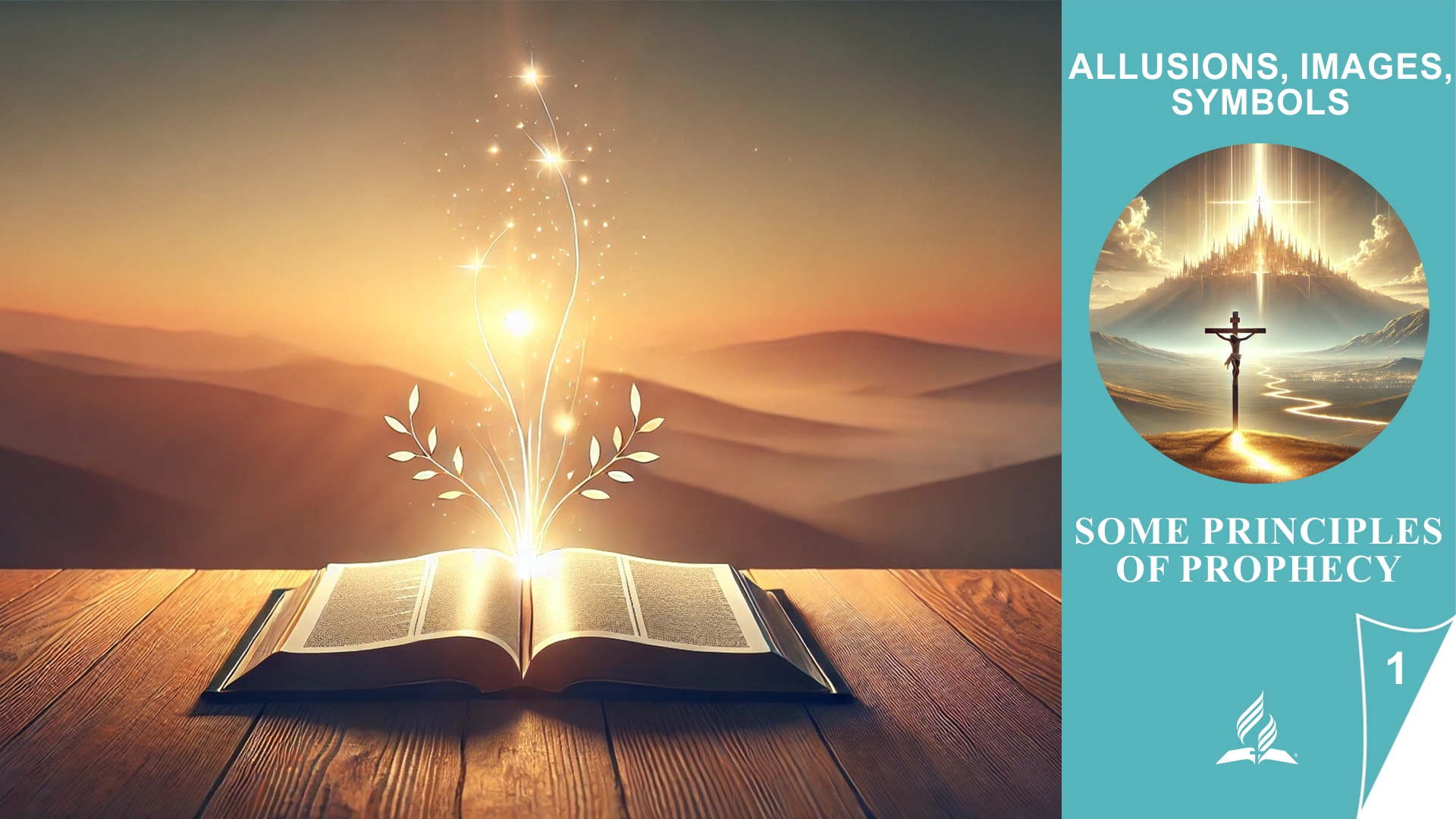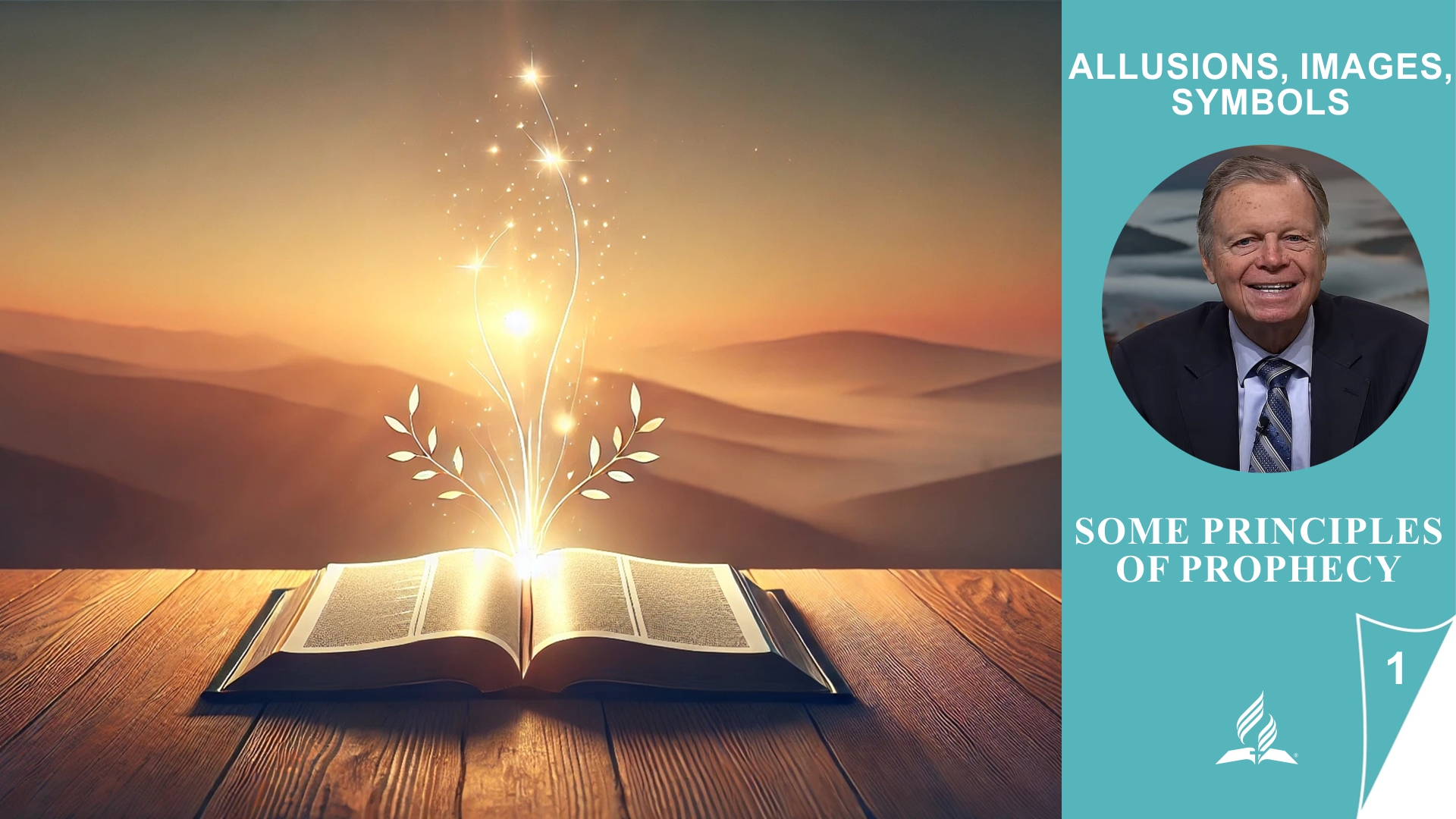March 31, 2024
DAILY BIBLE READING – Offenbarung Chapter 6
1 And I saw when the Lamb opened one of the seals, and I heard, as it were the noise of thunder, one of the four beasts saying, Come and see.
2 And I saw, and behold a white horse: and he that sat on him had a bow; and a crown was given unto him: and he went forth conquering, and to conquer.
3 And when he had opened the second seal, I heard the second beast say, Come and see.
4 And there went out another horse that was red: and power was given to him that sat thereon to take peace from the earth, and that they should kill one another: and there was given unto him a great sword.
5 And when he had opened the third seal, I heard the third beast say, Come and see. And I beheld, and lo a black horse; and he that sat on him had a pair of balances in his hand.
6 And I heard a voice in the midst of the four beasts say, A measure of wheat for a penny, and three measures of barley for a penny; and see thou hurt not the oil and the wine.
7 And when he had opened the fourth seal, I heard the voice of the fourth beast say, Come and see.
8 And I looked, and behold a pale horse: and his name that sat on him was Death, and Hell followed with him. And power was given unto them over the fourth part of the earth, to kill with sword, and with hunger, and with death, and with the beasts of the earth.
9 And when he had opened the fifth seal, I saw under the altar the souls of them that were slain for the word of God, and for the testimony which they held:
10 And they cried with a loud voice, saying, How long, O Lord, holy and true, dost thou not judge and avenge our blood on them that dwell on the earth?
11 And white robes were given unto every one of them; and it was said unto them, that they should rest yet for a little season, until their fellowservants also and their brethren, that should be killed as they were, should be fulfilled.
12 And I beheld when he had opened the sixth seal, and, lo, there was a great earthquake; and the sun became black as sackcloth of hair, and the moon became as blood;
13 And the stars of heaven fell unto the earth, even as a fig tree casteth her untimely figs, when she is shaken of a mighty wind.
14 And the heaven departed as a scroll when it is rolled together; and every mountain and island were moved out of their places.
15 And the kings of the earth, and the great men, and the rich men, and the chief captains, and the mighty men, and every bondman, and every free man, hid themselves in the dens and in the rocks of the mountains;
16 And said to the mountains and rocks, Fall on us, and hide us from the face of him that sitteth on the throne, and from the wrath of the Lamb:
17 For the great day of his wrath is come; and who shall be able to stand?
King James Version. Public Domain
Commentary
 Introduction
Introduction
Chapter 6 of Revelation is one of the most impressive and at the same time most startling sections of the Bible. Here the Lamb – Jesus Christ – begins to open the book with the seven seals that contain God’s plan for judgment and the completion of history. The first six seals reveal a dramatic sequence of events: wars, unrest, economic distress, death, persecution, and cosmic upheavals. Yet amid all the chaos it becomes clear: It is the Lamb who is in control.
 Commentary
Commentary
1.The First Four Seals – The Four Apocalyptic Riders (Verses 1–8)
Each of the first four seals brings forth a horse with a rider – images for great powers and global developments:
-
White Horse: Conquest and victory – possibly an image of power, ideology, or even a deceptive peace.
-
Red Horse: War – peace is taken from the earth, and violence prevails.
-
Black Horse: Economic distress – symbolized by a scale, expensive food prices, and selective protection of luxury goods such as oil and wine.
-
Pale Horse: Death – followed by death and Hades, and a quarter of the earth is plagued by various means of death.
 Meaning: These riders represent the fundamental sufferings of humanity – political greed for power, war, injustice, death. But they do not come out of nowhere: They are unleashed by the Lamb. This shows that even in difficult times, nothing happens without God’s knowledge and permission.
Meaning: These riders represent the fundamental sufferings of humanity – political greed for power, war, injustice, death. But they do not come out of nowhere: They are unleashed by the Lamb. This shows that even in difficult times, nothing happens without God’s knowledge and permission.
2.The Fifth Seal – The Voices of the Martyrs (Verses 9–11)
Beneath the altar, John sees the souls of those who have died for their faith. They cry out for justice and judgment. Yet God tells them: The time has not yet come. They are to rest – in white robes of righteousness – until even the last of their brethren have completed the path of martyrdom.
 Meaning: Amidst suffering and injustice, heaven calls for patience. God’s judgment is delayed – not out of weakness, but out of grace. The faithfulness of the martyrs is not forgotten, but honored.
Meaning: Amidst suffering and injustice, heaven calls for patience. God’s judgment is delayed – not out of weakness, but out of grace. The faithfulness of the martyrs is not forgotten, but honored.
3.The Sixth Seal – Cosmic Upheaval and the Fear of the World (Verses 12–17)
Upon opening the sixth seal, a tremendous earthquake shakes both heaven and earth. The sun and moon change, the stars fall, the heavens vanish, and mountains and islands are moved. The mighty of the earth – kings, empires, rulers – hide in fear of the wrath of the Lamb.
 Meaning: The day of wrath is not a blind outburst of anger, but the moment when God’s justice becomes visible. People realize: We stand before the living God – and nothing can save us except grace.
Meaning: The day of wrath is not a blind outburst of anger, but the moment when God’s justice becomes visible. People realize: We stand before the living God – and nothing can save us except grace.
 Summary
Summary
Revelation 6 shows the reality of a fallen world – characterized by unrest, war, economic injustice, death, and persecution. But these catastrophes do not occur chaotically. The Lamb – Christ – is the one who opens the seals. He stands above history.
The first six seals remind us: The world is moving toward a turning point where God will establish justice. The cry of the martyrs highlights the tension between patience and the longing for justice. And in the end, the world asks: “Who can withstand?” – a question that Chapter 7 prepares to answer.
 Message for Us Today
Message for Us Today
In a world full of crises, uncertainty, and apparent disorientation, Revelation 6 reminds us: God is in control – even when everything falls apart.
Faith does not call us to explain all catastrophes, but to trust in the Lamb who directs history.
 For us today this means:
For us today this means:
-
Do not be ruled by fear – Christ is the victor.
-
Live vigilantly – history is moving toward a goal.
-
Stand firm in your faith – even when persecution or rejection comes.
-
Hold on to hope – God’s justice will prevail.
And above all: Ask yourself the question that the world asks in the end:
 “Who can withstand?” – And then answer in faith:
“Who can withstand?” – And then answer in faith:
 Only he who entrusts himself to the Lamb.
Only he who entrusts himself to the Lamb.
“The Lord knows his own.” (2 Timothy 2:19)
![]()

WEEKLY SPIRIT OF PROPHECY READING – Ellen White | Steps to Christ
Chapter 11—The Privilege of Prayer
Read online here
Commentary
 Introduction
Introduction
Prayer is more than a religious duty or a fleeting cry for help in times of need—it is the bridge between the human heart and the throne of God. In chapter 11 we recognize that prayer is not only possible, but a grace-gift, an incomparable privilege, and a means of communion with the almighty, loving Father. However, this gift often remains unutilized—to the detriment of our spiritual life.
 Commentary
Commentary
1.The Necessity of Prayer (Paragraphs 1–4)
God speaks to us in many ways—through nature, word, providence, and spirit.
Yet without our personal response in prayer, this relationship remains incomplete.
Prayer is more than talking—it is opening one’s heart and moving toward God.
2.Jesus’ Example in Prayer (Paragraphs 5–6)
Jesus Himself—sinless and divine—felt the need for prayer.
He sought the Father in solitude, bore our weaknesses, and served as a model for intercession.
If the Son of God prayed—how much more do we need prayer!
3.God’s Willingness to Hear (Paragraphs 7–10)
God longs to bless us—and we pray so little!
The angels can hardly comprehend this restraint—for they experience prayer as the highest joy.
Without prayer, we lose the connection to heaven and become defenseless against temptations.
4.Conditions for Prayer Answering (Paragraphs 11–18)
An honest longing for God, repentance, confession, and forgiveness toward others.
Faith is essential—even when visible answers are absent.
God hears—and responds at the right time to the true needs of our hearts.
5.The Power of Personal and Constant Prayer (Paragraphs 19–25)
Prayer in the quiet inner room holds special value.
A continual heart-connection with God is possible—even amid everyday life.
Examples such as Enoch or Nehemiah show: true prayer is an uninterrupted way of life.
6.The Danger of Neglected Prayer (Paragraphs 26–30)
A lack of prayer leads to estrangement from God and weakens our spiritual life.
We should combine the fellowship of believers, devotion, and service.
Those who isolate themselves or only pray without acting lose the joy of prayer.
7.The Joy of Prayer and Praise (Paragraphs 31–End)
Thanksgiving should be a central part of the prayer life.
God desires our worship to be marked by joy, trust, and love—not by fear.
Praise and thanksgiving open the heart to new blessings.
 Summary
Summary
Prayer is a sacred grace-gift through which we can stand in intimate communion with God. It is the “key in the hand of faith” that opens the treasure chamber of heaven. Prayer is indispensable for the spiritual life, yet its power unfolds only under certain conditions: humility, faith, forgiveness, and perseverance. Christ Himself was a perfect example to us—and invites us to find strength, comfort, and divine closeness in prayer.
 Message for Us Today
Message for Us Today
In a world full of noise, distraction, and uncertainty, prayer remains our direct connection to heaven.
 “Ask, and it will be given to you…” (Matthew 7:7)
“Ask, and it will be given to you…” (Matthew 7:7)
God is waiting to commune with us—not as a distant judge, but as a loving Father. Prayer does not change God, but changes us: our trust grows, our vision clarifies, our heart becomes quiet and receptive to the working of His Spirit.
 What does this mean for you today?
What does this mean for you today?
Take time for quiet prayer. Not as an obligation, but as a source of comfort and strength.
Stay connected with God in everyday life. Let your heart speak to Him often—in thought, in whispers, in silence.
Trust in His response—even if it comes differently than expected.
Forgive others. How can we ask God for grace if we harbor unforgiveness ourselves?
Praise God! Thanksgiving transforms our hearts—and makes us receptive to further blessings.
 Prayer is not merely talking with God—it is living with God.
Prayer is not merely talking with God—it is living with God.
Let us learn to live in the light of this grace-gift.
Source: https://fulfilleddesire.net/31-03-2025-revelation-chapter-6-believe-his-prophets/


 Introduction – A Clear Compass in the Fog of Interpretations
Introduction – A Clear Compass in the Fog of Interpretations “Let the one who reads understand!” – and that’s exactly what God is calling you and me to do.
“Let the one who reads understand!” – and that’s exactly what God is calling you and me to do.
 Lesson 1 – Some Principles of Prophecy
Lesson 1 – Some Principles of Prophecy These verses make it clear: God wants us to understand Him — not just intellectually, but with heart, mind, and spirit.
These verses make it clear: God wants us to understand Him — not just intellectually, but with heart, mind, and spirit. Spiritual Principles – How to Read Prophecy Rightly
Spiritual Principles – How to Read Prophecy Rightly Application in Daily Life – Becoming a Listening Reader
Application in Daily Life – Becoming a Listening Reader Conclusion – The Bible Speaks to Those Who Want to Hear
Conclusion – The Bible Speaks to Those Who Want to Hear Thought of the Day
Thought of the Day Illustration – Between the Lines
Illustration – Between the Lines Introduction
Introduction Commentary
Commentary Summary
Summary Message for Us Today
Message for Us Today
 “Ask, and it will be given to you…” (Matthew 7:7)
“Ask, and it will be given to you…” (Matthew 7:7) What does this mean for you today?
What does this mean for you today? Prayer is not merely talking with God—it is living with God.
Prayer is not merely talking with God—it is living with God.

